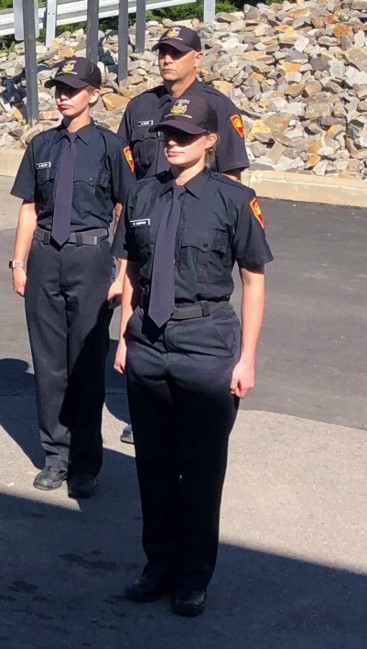October 17, 2023
Helping to Solve the Police Officer Shortage
Christopher Wheeler, Director, Mansfield’s Public Safety Training Institute
When there’s an emergency and someone calls 911, we depend on local police officers
to respond to render assistance, offer protection, or save lives. But a shortage of
police officers is making it difficult for local departments to hire and retain enough
personnel, especially in Pennsylvania’s rural communities. At Commonwealth University, Mansfield’s Public Safety Training Institute is uniquely positioned to help solve the police officer shortage by using cutting-edge
technology and a track record of success.

Through our Act 120 Municipal Police Academy, we are continuing to increase the complement
of police officers through quality, cost-effective training for currently working
police officers and other first responders throughout Pennsylvania. In fact, Mansfield
has provided the Basic Training Certification to hundreds of police officers since
the 1970s, and since its founding in 2018, the Public Safety Training Institute has
provided more than 135,000 hours of training to approximately 3,500 practitioners.
If you dig deeper into the numbers, trainees in 2022 increased by 65% compared to
the year prior, underscoring the growing need in our communities.
We are often asked, what does Mansfield do to set its Public Safety Training Institute
apart from other police academies? That’s easy. Mansfield’s was the first municipal
police academy in Pennsylvania to incorporate virtual reality (VR) into its training
curriculum. VR technology allows us to immerse police academy cadets into a number
of different scenarios they might encounter during their careers. This training helps
to build confidence as well as communication skills, which are essential to being
a productive and effective police officer.
We have also assisted in taking mobile VR training to agencies throughout the state.
This allows officers to experience VR training in-house or at a nearby department,
saving time and travel expenses.
In addition, Mansfield has directly provided or partnered with others to provide quality
public safety training here on our campus in north-central Pennsylvania. Most of the
commonwealth’s public safety training facilities are located in the state’s far eastern
or western corridors, or south of Interstate 80. There was a need for quality training
in our area, and Mansfield fills that need.
This is core to the mission of Pennsylvania’s State System of Higher Education (PASSHE):
Our state-owned universities were originally intended to be the educational centers
of their respective regions. By offering non-credit training, such as the Municipal
Police Academy, we are helping to meet the educational needs of Pennsylvania communities.
This non-credit training also makes individuals aware of other opportunities PASSHE
universities offer, creating a comprehensive and cohesive educational pathway to certifications
and degree programs that are attractive to employers.
 Being part of the State System allows Commonwealth University students to incorporate
the Municipal Police Academy into their degree programs. Through the Criminal Justice
Pathway, students may enter the academy in May, immediately after the spring semester
of their junior year. These students attend the academy, completing it in November
and earning credits toward their degree. They resume their degree work in January
and graduate with both a Bachelor of Science in Criminal Justice and police officer
certification, all in four years. This saves students both time and money.
Being part of the State System allows Commonwealth University students to incorporate
the Municipal Police Academy into their degree programs. Through the Criminal Justice
Pathway, students may enter the academy in May, immediately after the spring semester
of their junior year. These students attend the academy, completing it in November
and earning credits toward their degree. They resume their degree work in January
and graduate with both a Bachelor of Science in Criminal Justice and police officer
certification, all in four years. This saves students both time and money. Our state is a very special place. We come together—despite sometimes having differing
views—to solve challenges and fulfill the needs of our residents. PASSHE continues
to lead that effort by bringing together talented people from all disciplines and
backgrounds to serve our communities.
What we do here is special, but it’s the people that come to our institute who inspire
me most. These people, from our cadets just starting out to our longest-serving public
safety professionals, are all making significant impacts on the quality of life in
the communities they serve. They are helping to address the police officer shortage—just
one example of how PASSHE positively contributes to the greater good of our state.